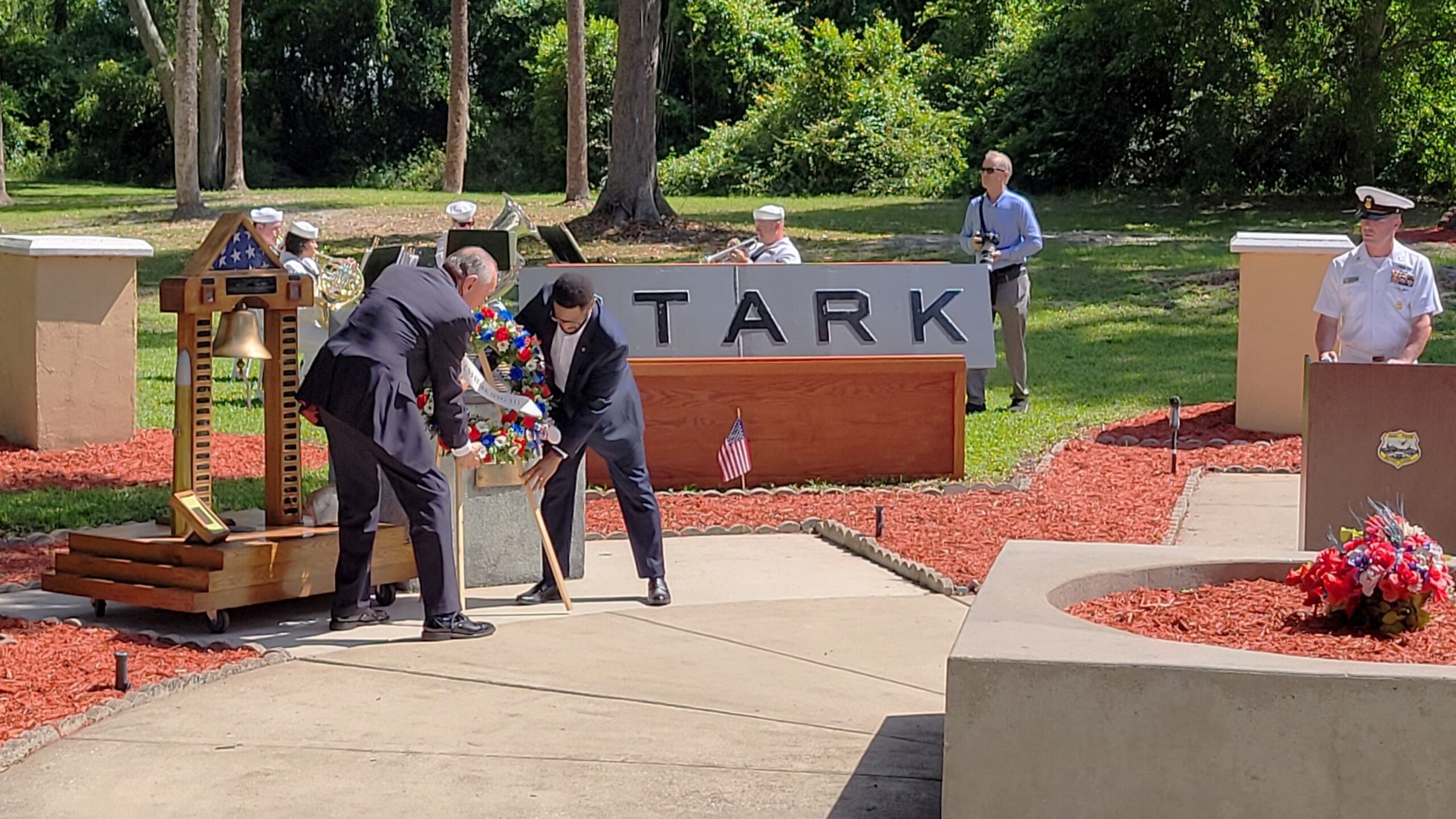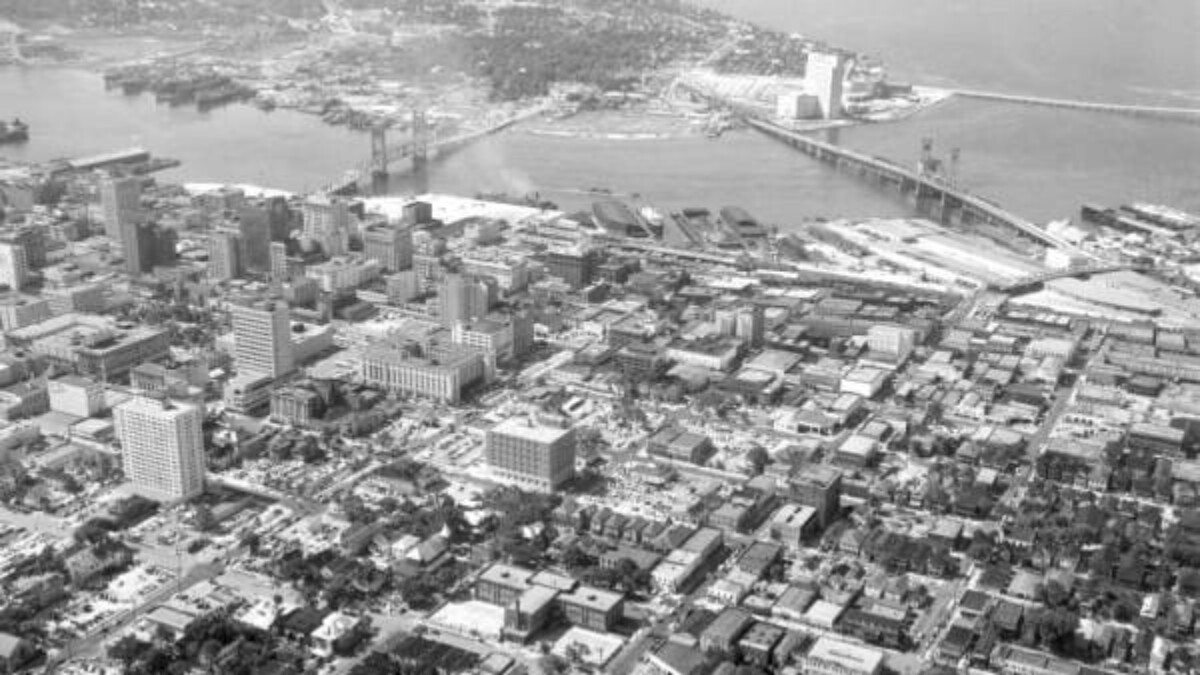Gil Berrios was watching a movie with fellow crewmates on board the USS Stark just after 10 p.m. on May 17, 1987, when they all heard a “WHOOSH” and the lights went out.
It was the first of two Iraqi Exocet missiles piercing the ship’s hull as it sat at anchor in the Arabian Gulf. The missile’s fuel ignited a huge fire as a second exploded while tearing its way inside the U.S. Navy frigate based at Naval Station Mayport.
For Berrios — a signalman who now lives in Scranton, Pennsylvania — escape was all that mattered.
“Our berthing was on fire. The noise came from the port side; we all ran to the starboard side like rats inside a can — we were all trying to get out,” Berrios said. “My daughter was 7 months old when I went on deployment, and in Karachi, Pakistan, I bought her a jewelry box for her first birthday. That survived the missile attack, and she still has that to this day.”
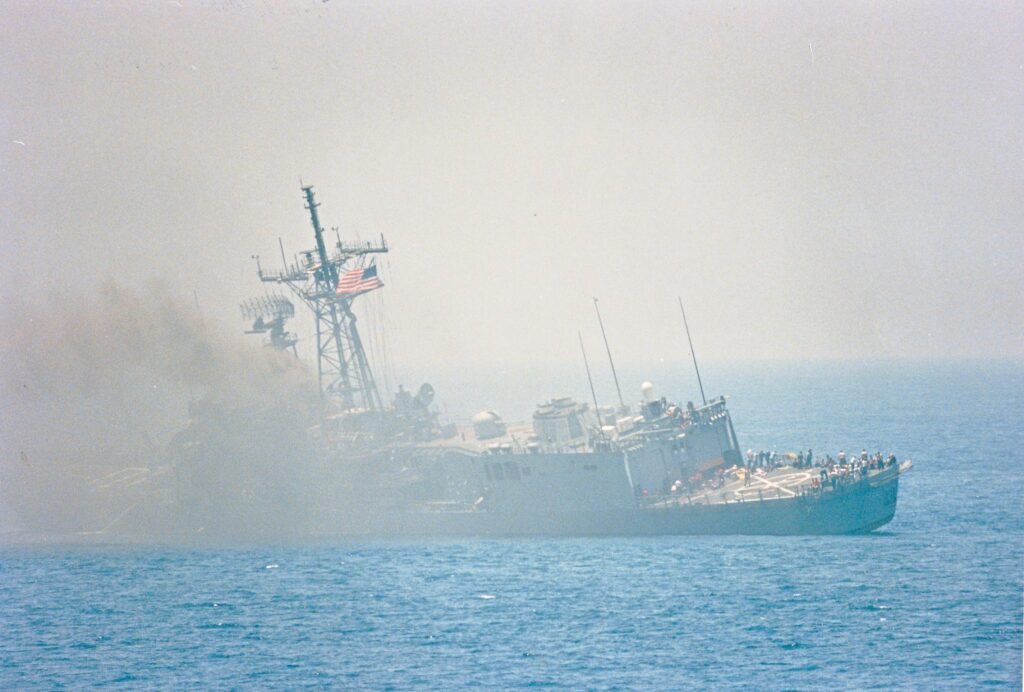
On Friday, Berrios joined more than 200 people who attended an annual USS Stark memorial at a tree-shaded park at the Mayport base. They were men who were on board 38 years ago, plus family members of the 37 who died.
In front of them stood the restored sternplate of the ship, a permanent display at Mayport after it was found in a junkyard years after its decommissioning in 1999.
Nearby, members of every current ship and division based at Mayport were there to remember the men who died on the USS Stark.
The 37 dead sailors represented the largest loss of life to any U.S. Navy ship based at Mayport during a single attack. The missile attacks set the ship’s post office, combat operations center and storeroom ablaze as crew, many asleep, fled for their lives.
The Navy set up a USS Stark memorial at Morse Avenue and Maine Street at the naval station, with a plaque identifying those who died.
Rear Admiral Carlos Sardiello reminded the audience that despite severe damage, the Stark survived to sail again.
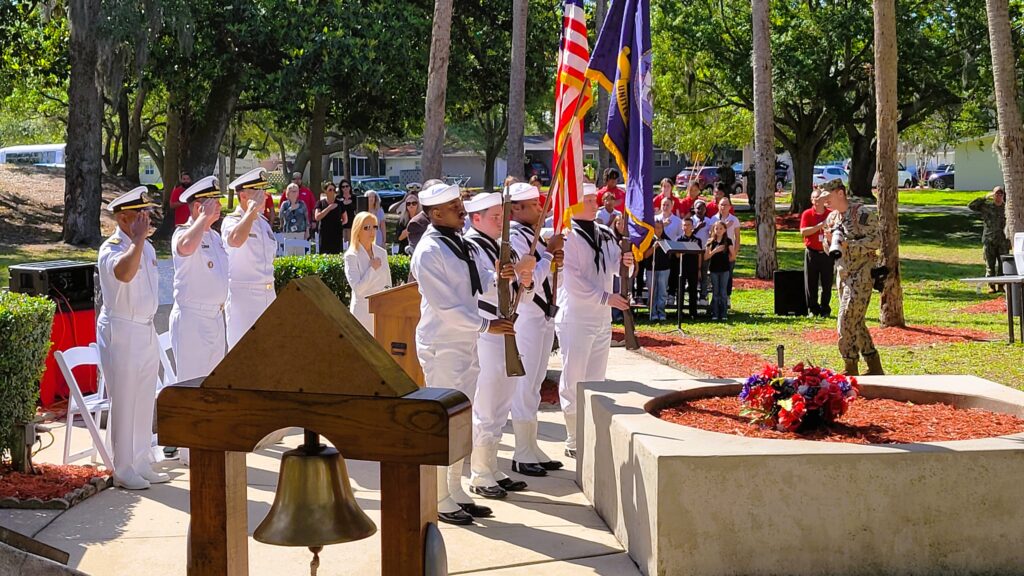
“The crew saved the ship after it began to list,” said Sardiello, head of the U.S. Southern Command. “The commanding officer’s quick decision to flood to starboard kept the ship from capsizing and being lost. All those selfless actions to fight this in the middle of a conflagration, we cannot repay that debt to them. They brought it under control and the frigate sailed to Bahrain.”
Retired Lt. Comm. Michael O’Keefe was the Stark’s damage control leader the night the missiles hit. He said the blast knocked him out of his bunk. As he headed to help damage control, he heard other crew members screaming.
“We got them all out, then we started doing whatever was needed to save the ship and save ourselves,” O’Keefe said.
It wasn’t just the damage control team that kept the Stark from sinking, said O’Keefe, now a Nashville resident.
“The crew is responsible for that. We worked together as a team. When you work together as a team and are trained properly, you can do anything. God was on our side that night, and we were being watched by the mermaids and we stayed afloat.”
As for Berrios, this was his first time at the memorial, leaving him feeling overwhelmed, yet glad of the healing it is bringing him, he said.
“It is traumatic, like right now. It’s a little tense,” he said. The memorial organizer “convinced me to come down after 38 years. She told me it’s about time I get together and help with the healing process. Last night, we had a dinner, and I got to talk to shipmates and tell some good stories.”
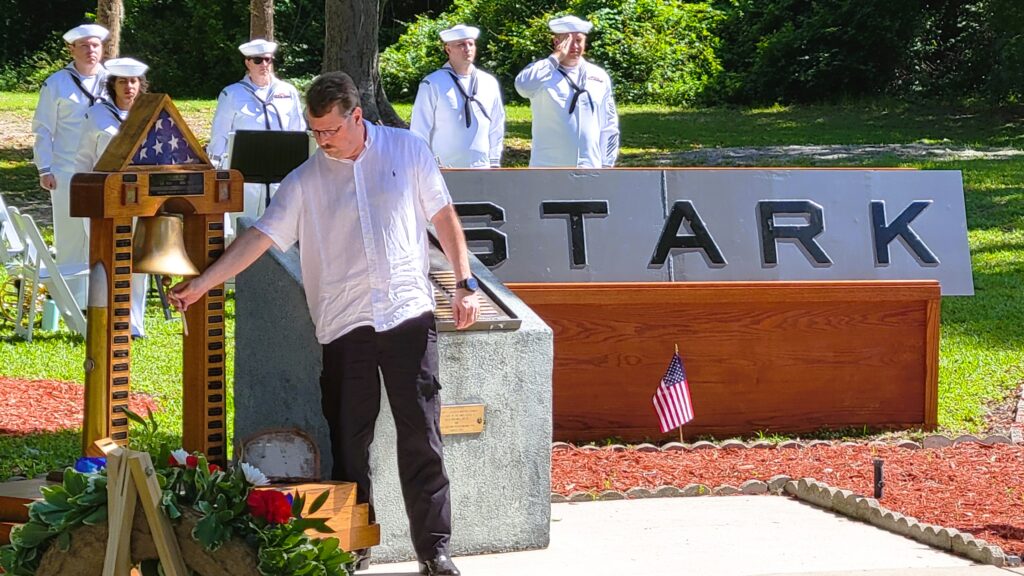
During the memorial, a honors detail fired a rifle salute as past and present base officials saluted.
Former Stark crewmember Nick Norfleet tolled the ship’s bell near the end of Friday’s ceremony, one solemn ringtone each time shipmate Bernard Martin read the name of one of those who died that night.
Taps and a rifle salute followed.



